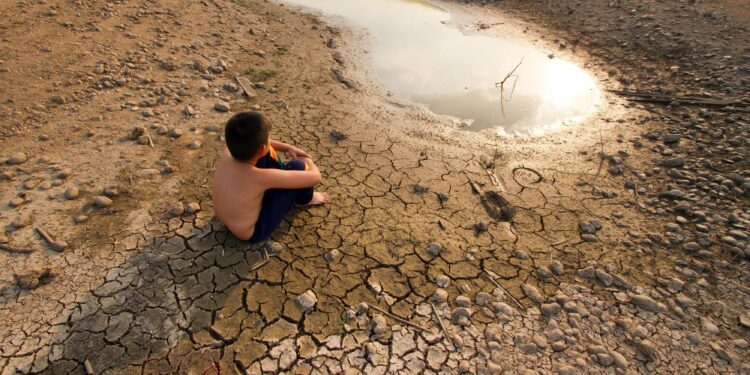Pakistan is facing an unprecedented climate crisis—one that threatens the survival of millions. Despite contributing almost nothing to global carbon emissions, this South Asian nation finds itself grappling with catastrophic flooding, food shortages, and deadly heatwaves. The world’s top polluters continue to emit greenhouse gases, while countries like Pakistan bear the brunt of the climate catastrophe. This stark reality must be acknowledged, and urgent action is needed before it’s too late.
Pakistan’s Daily Struggle with Climate Change
In recent years, Pakistan has seen the devastating effects of climate change firsthand. From the catastrophic floods of 2022, which submerged a third of the country, to the extreme heatwaves and droughts that have become more frequent, the country’s climate vulnerability is undeniable.
The impacts are severe:
-
Flooding: Pakistan has experienced record-breaking floods, displacing millions and destroying vital infrastructure. The 2022 floods alone affected over 33 million people.
-
Heatwaves: Pakistan regularly faces extreme heat, with temperatures soaring to 50°C (122°F), leaving thousands at risk of heatstroke and other related health issues.
-
Food Shortages: Climate disruptions have severely impacted agriculture. Farmers are struggling to grow crops due to unpredictable weather patterns, leading to widespread food insecurity.
The country’s people are paying a heavy price for global climate inaction. With floods, droughts, and heatwaves becoming the norm, Pakistan is increasingly at risk of social and economic collapse. The world’s largest emitters must be held accountable for the devastation they’ve caused.

Global Polluters Must Pay for Pakistan’s Crisis
Despite being responsible for less than 1% of global greenhouse gas emissions, Pakistan is suffering from the same devastating climate impacts that have been primarily caused by the industrialized world. Countries like the United States, China, and the European Union must recognize that their emissions have caused irreversible damage to countries like Pakistan. As global temperatures continue to rise, countries that have contributed the least to climate change are bearing the brunt of its effects.
The lack of climate finance and support for nations like Pakistan is glaring. The $100 billion in climate finance promised under the Paris Agreement remains largely unfulfilled. Pakistan, with its limited resources, continues to struggle in its battle against climate-induced disasters. The international community must step up, not just in terms of emissions cuts, but in providing financial and technical support to developing countries facing the worst of climate impacts.
The Human Toll: Migration, Poverty, and Loss of Livelihoods
In addition to the devastating environmental effects, climate change is driving mass migration within Pakistan. Millions of rural residents, especially from flood-prone areas like Sindh, Balochistan, and Punjab, are fleeing to urban slums in search of refuge. Cities like Karachi, already overcrowded, are now home to climate refugees who live in appalling conditions.
For those who remain in rural areas, the outlook is equally bleak. Pakistani farmers are struggling with failing crops, leaving them burdened with debt and poverty. Without enough food to feed their families or income to rebuild, many are left with no choice but to abandon their farms and migrate. This cycle of poverty, environmental destruction, and migration is threatening the nation’s social fabric.
Urgent Action Needed: Global Responsibility
The global community must recognize that climate change is no longer a distant threat—it is an urgent reality. The effects of climate change are already unfolding in Pakistan, and the country’s population is paying the price for decades of environmental neglect. As floods ravage the country, as temperatures soar, and as food becomes increasingly scarce, Pakistan is on the brink of a humanitarian disaster.
The world must act now. The time for empty promises and rhetoric has passed. The international community must provide climate finance, technological support, and assistance to vulnerable nations like Pakistan. The rich nations that have reaped the benefits of industrialization must now take responsibility for the harm they have caused.
A Call to Action for Climate Justice
Pakistan’s climate crisis is a human rights issue. It is a global injustice that the people of Pakistan—who have contributed the least to the crisis—are suffering the most. Climate change has already caused irreversible damage to the country’s infrastructure, economy, and social fabric. The time to act is now.
Global polluters must be held accountable for their role in causing Pakistan’s climate disaster. Climate finance, promised at global summits, must be delivered immediately to assist nations like Pakistan in their fight for survival. The world must take responsibility for the climate crisis—before it is too late for Pakistan and other vulnerable nations.
Act Now for Pakistan: The climate crisis is here. Will the world stand by while millions suffer, or will it rise to the occasion and provide the support that countries like Pakistan desperately need?
Related stories:
Pakistan Climate & Development World Bank Report
IMF, Pakistan to Open $1 Billion Climate Finance Talks Next Week, Says Adviser
The Impact of Pakistan’s Climate Crisis on Gender Based Violence
Climate Anxiety Looms Over Pakistan’s Flood Survivors: A Year After Catastrophe
















